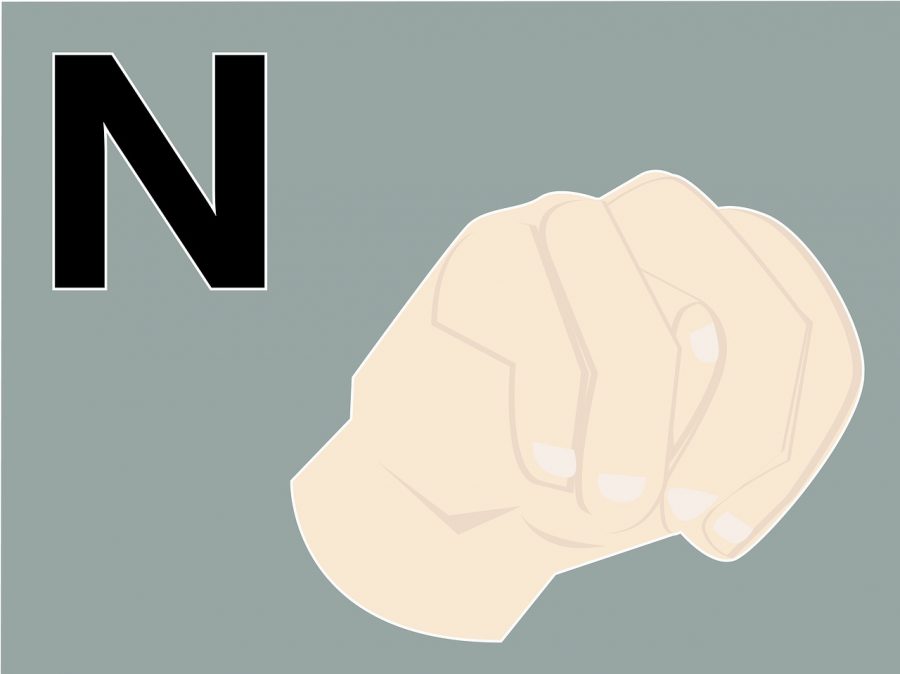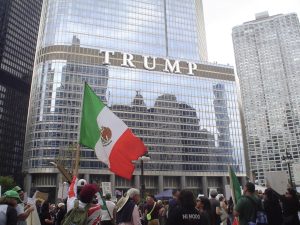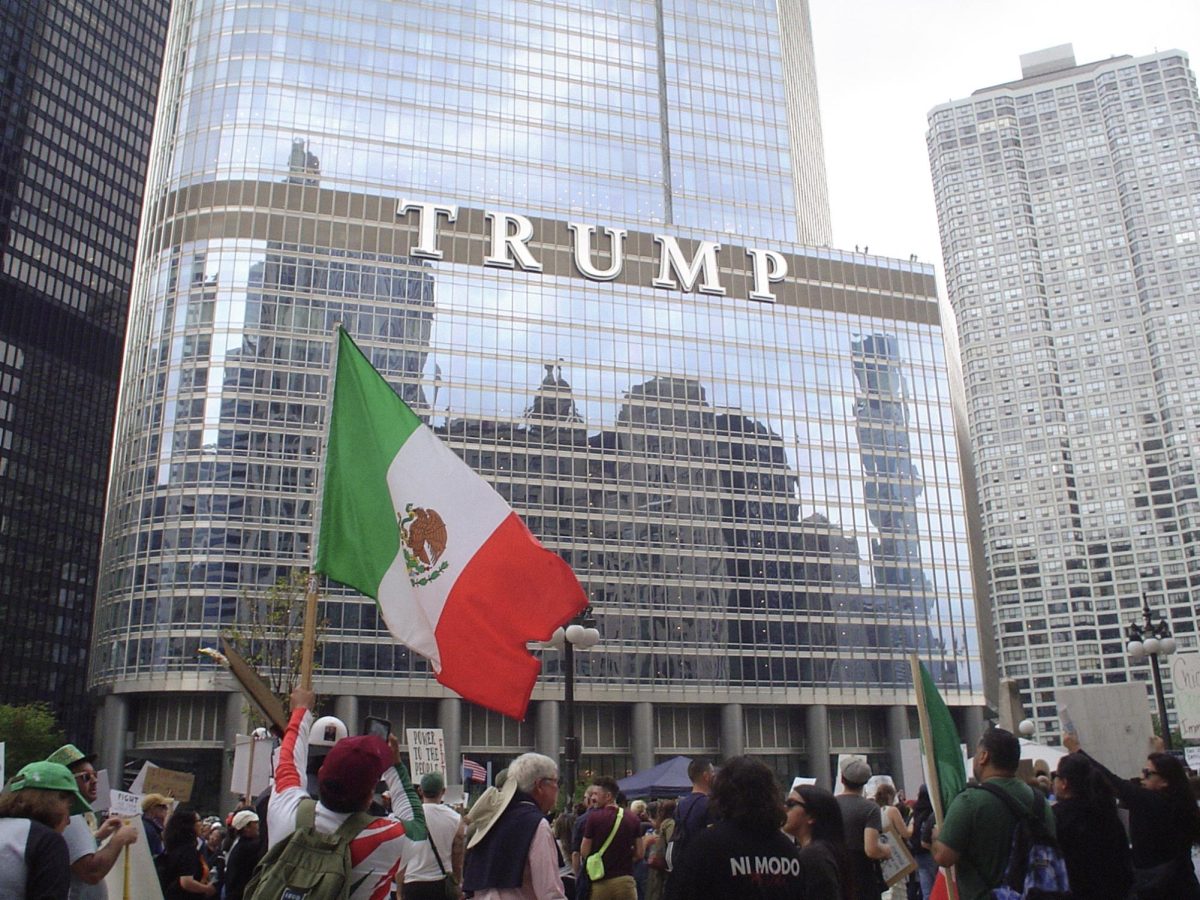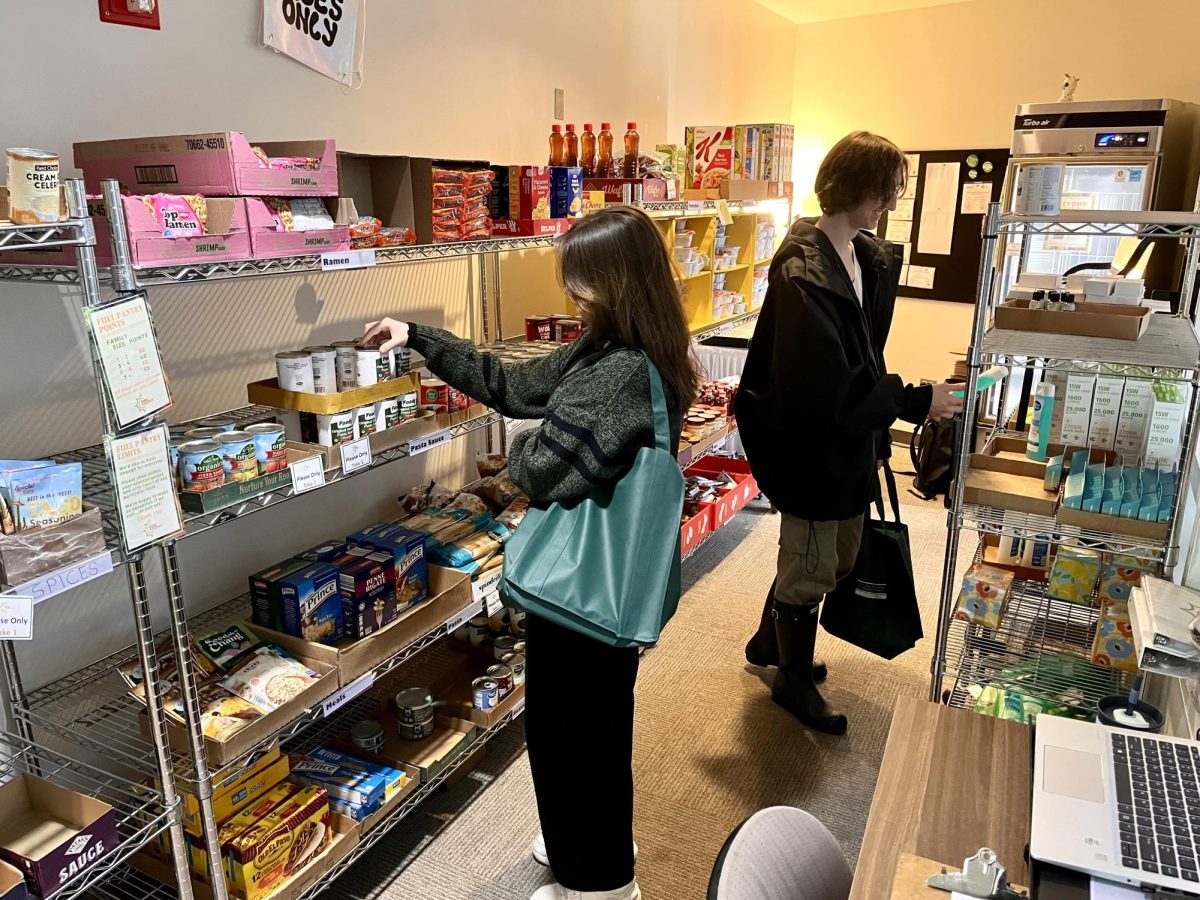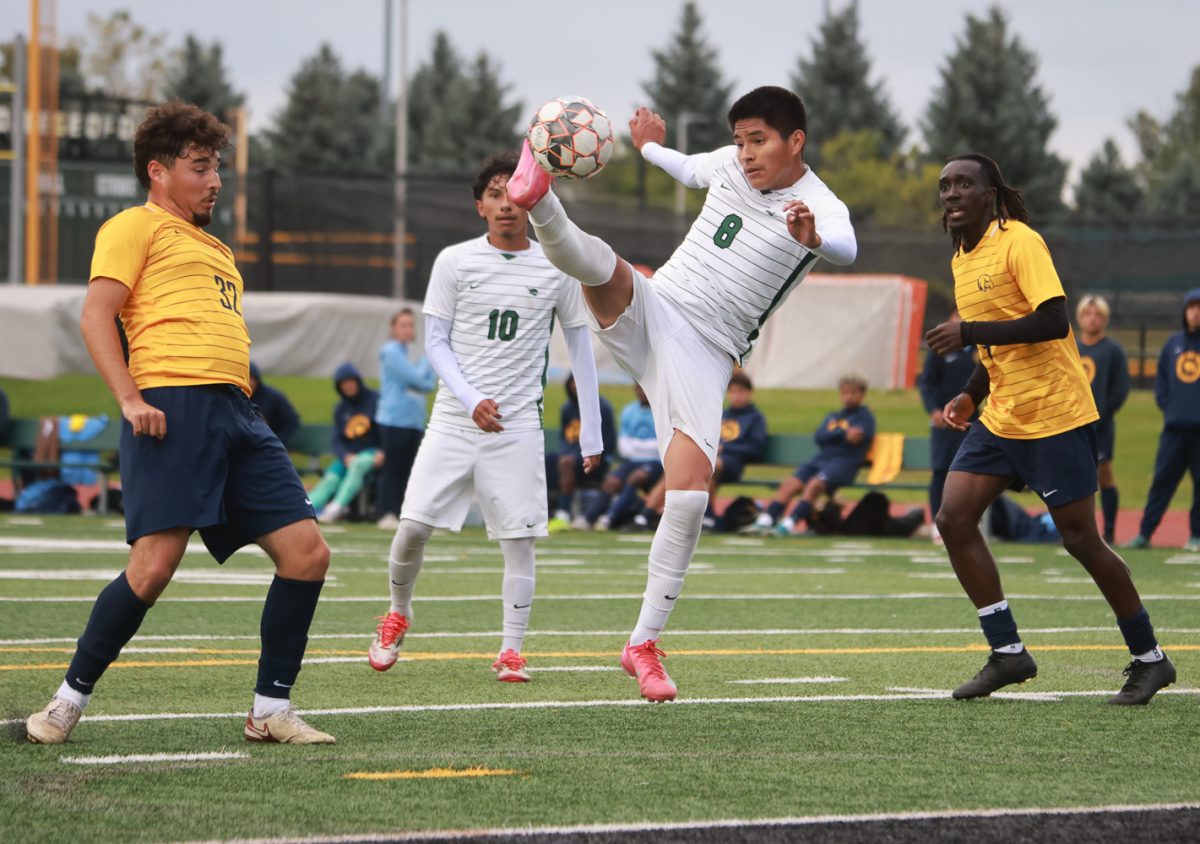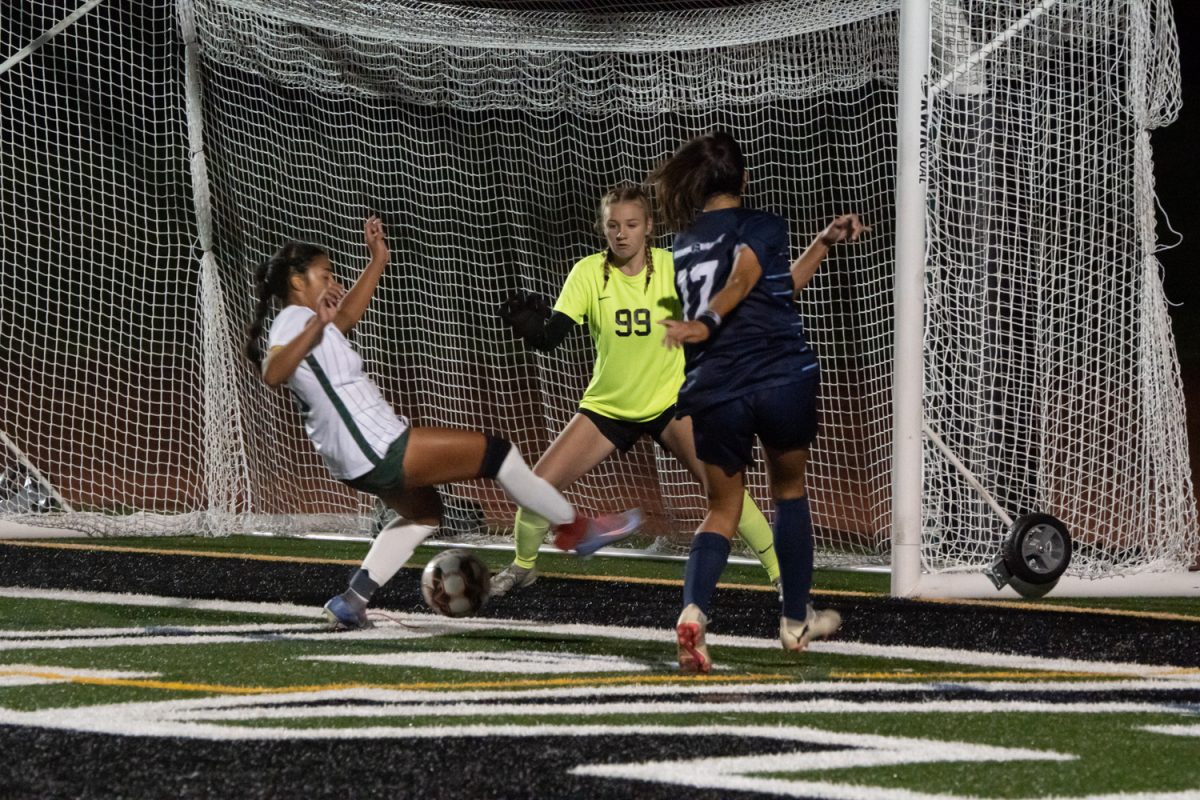Column: Good teachers use the N-word
August 21, 2018
Omarosa Manigault Newman, the senior White House staffer turned author, said recently during her book tour that she had heard a tape of President Donald Trump using the N-word during his time on the reality show The Apprentice. Trump denied the existence of any such tape, tweeting, “I don’t have that word in my vocabulary and never have. She made it up.”
Whether such a tape exists or not, would such a recording tell us anything we don’t already know? We already have plenty of evidence of the president’s bigotry and racism. From his taking out a one-page ad in The New York Times to call for the death penalty for the Central Park Five in 1989 before they were eventually exonerated, to his equating of torch-toting neo-Nazis and Confederate sympathizers with anti-racist protesters in Charlottesville last year, and instituting a travel ban for those from certain Muslim-majority nations, and proposing a border wall with Mexico, and his gross labeling of Mexican immigrants as rapists and murderers (I could go on), his actions have betrayed his words. It’s a safe assumption that he has used the word before.
The day after Manigault Newman’s revelation, on the comedy news program The Daily Show, correspondent Roy Wood Jr. eloquently and hilariously explained the situation using muscular movie star Dwayne “The Rock” Johnson, saying, “I don’t need footage of the Rock in the gym to know if he works out!”
Likewise, we don’t need tapes to know Trump — or other past presidents for that matter — used the word; we have public policy to show it. Government-backed slavery, redlining that kept black people from getting low-interest loans and a three-strikes policing policy that led to the mass incarceration of black people speak volumes about what federal leaders believed, and said, behind closed doors. Nevertheless, if a tape surfaces of Trump using the N-word, how should teachers respond to the media storm that would surely follow?
To be clear, educators hear and use the N-word everyday. They say it as a slur, or a term of endearment, or they teach it within the text of assigned readings. Students spew it in the hallways, on the way to and from school, on buses and in sports practice. It proliferates in pop culture: in music, in movies and in slang. It’s so ubiquitous that teachers have no choice but to teach its etymology and proper context of usage.
We don’t need tapes to know Trump — or other past presidents — used the word; we have public policy to show it.
Black people use it too, as a way to subvert its ugly history, rooted in slavery, racism and the systematic oppression of black folk, and a means of reclaiming the word for themselves.
For that same reason, white people, as the architects and enforcers of slavery, don’t have our permission to use it. Yet they try. Last spring, Ryan Brown, a former substitute teacher at Ben Franklin High School in New Orleans, felt he had license to employ the N-word in the classroom. Students captured the incident on video. The video picked up an already heated discussion between the students and Brown, who can be heard arguing with a black male student, saying the slur was “a commoditized word” that is “used by everyone.” Luckily, black students in the class exercised their right to police the word. The school’s board fired Brown.
Yet Brown wasn’t fired because he uttered the N-word. He was fired because he didn’t know how to properly teach it.
The meaning and context of the word must be taught, regardless of the race of the teacher. I rarely use the word myself, to respect my ancestors who were killed, terrorized and systematically oppressed. It can never be a term of endearment for me. Words can’t be buried, though the NAACP attempted to do so with its funeral for the N-word in 2007. I applauded the historic civil rights group’s impossible challenge in trying to lay the word to rest. But the reality is that powerful words like this don’t easily die. However, we can choose to only use the N-word judiciously, reminding ourselves of its gravity by not using it loosely.
Teachers must teach the N-word, particularly in literature and music, in the context of the history of white supremacy, lynching, economic suppression as well as segregation and discrimination. They must deconstruct it. There are texts that give all teachers opportunities to use the N-word properly and to teach it to their students. American writer Mark Twain used the N-word 219 times in his classic, The Adventures of Huckleberry Finn, to bring attention to the system of white supremacy. Brown could have taught an entire lesson on the word to situate his white privilege in that racist system and possibly still be teaching in Ben Franklin today. When I read Huckleberry Finn in high school, we read aloud the entire book to experience and absorb the power of the word and understand its historic meaning. That great teaching device may be one of the reasons I don’t use it gratuitously today.
When I was a school consultant and administrator in New Orleans two years ago, I once witnessed a white teacher who was so uncomfortable using the word that she told her students to skip over it during readings of Toni Morrison’s A Mercy, a fictional narrative about how mothers and daughters experienced slavery. Students and faculty asked me to intervene after many students felt the word needed to be read. I had to provide a separate lesson on the word and how teachers should address it in lessons. If you’re a white teacher and you don’t assign great books or don’t properly teach them because you’re paralyzed by the N-word, find an outside person to assist.
There are plenty of other lesson plans, tips and advice teachers can also turn to for help, such as those created by the nonprofit Teaching Tolerance, which puts out anti-racist and anti-bias learning materials, and Facing History, a nonprofit international educational and professional development organization. These tools recognize that teachers need proper training; they augment teachers’ lesson plans to avoid common blunders that can erode students’ trust and faith.
There is no escaping the fact that teachers must use the N-word. But how they use it makes all the difference. Pretending the word doesn’t exist because it makes you uncomfortable is like believing that Trump isn’t racist: an act of delusion
This story was produced by The Hechinger Report, a nonprofit, independent news organization focused on inequality and innovation in education. Sign up for Hechinger’s newsletter.



